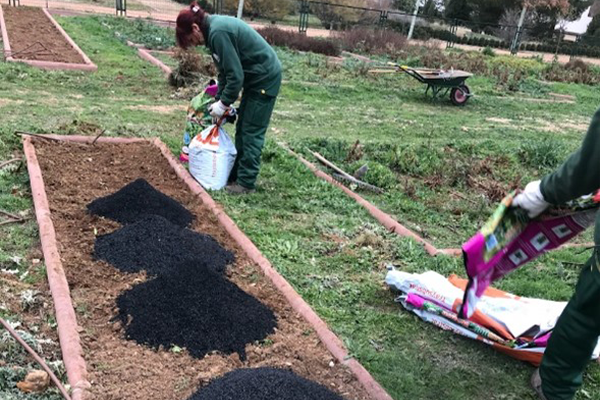BIOPROLIGNO: the project that will transform urban pruning into cutting-edge bioproducts

BIOPROLIGNO, a new project, coordinated on the scientific side by the University of Alcalá (UAH) and financed by the European Union, will use urban pruning remains, which usually end up in landfills, to transform them into advanced bioproducts, which will be used in gardening and in infrastructure maintenance.
The pruning remains, through a pyrolysis process, will be converted into three cutting-edge bioproducts; biochar, wood vinegar and biobitumen. Biochar is one of the bioproducts with the greatest future projection, since it is a permanent carbon sink, remaining unmetabolized for hundreds of years in the soil. In addition, its virtues as a soil improver cause plant growth in agriculture and gardening to increase by more than 100%.
On the other hand, wood vinegar will be used as a herbicide in gardening and infrastructure maintenance tasks, and as a natural pesticide, being able to replace synthetic pesticides such as glyphosate. And biobitumen will be tested as a substitute for bitumen from fossil fuels.
The project will have the collaboration of the companies FCC Medio Ambiente, which will provide the waste and test areas; MATINSA, which will use the products in its infrastructure maintenance and gardening tasks; and LAYNA, which will be in charge of transforming the remains through pyrolysis. Thus, the waste will come from the treatment plant in the town of Loeches (Madrid) managed by FCC Medio Ambiente, will be transformed in Guadalajara into a pyrolysis plant by the company LAYNA and will be used in gardens and orchards of the Royal Botanical Garden of the University of Alcalá and in maintenance areas of MATINSA and FCC Medio Ambiente.
The project has been approved in a call that finances collaborations between research institutions and private companies within the framework of the Recovery, Transformation and Resilience Plan financed by the European Union with Next Generation funds. Its duration is three years and it is expected that it can result in a technology that makes it possible to add value to forestry and agricultural woody waste.








